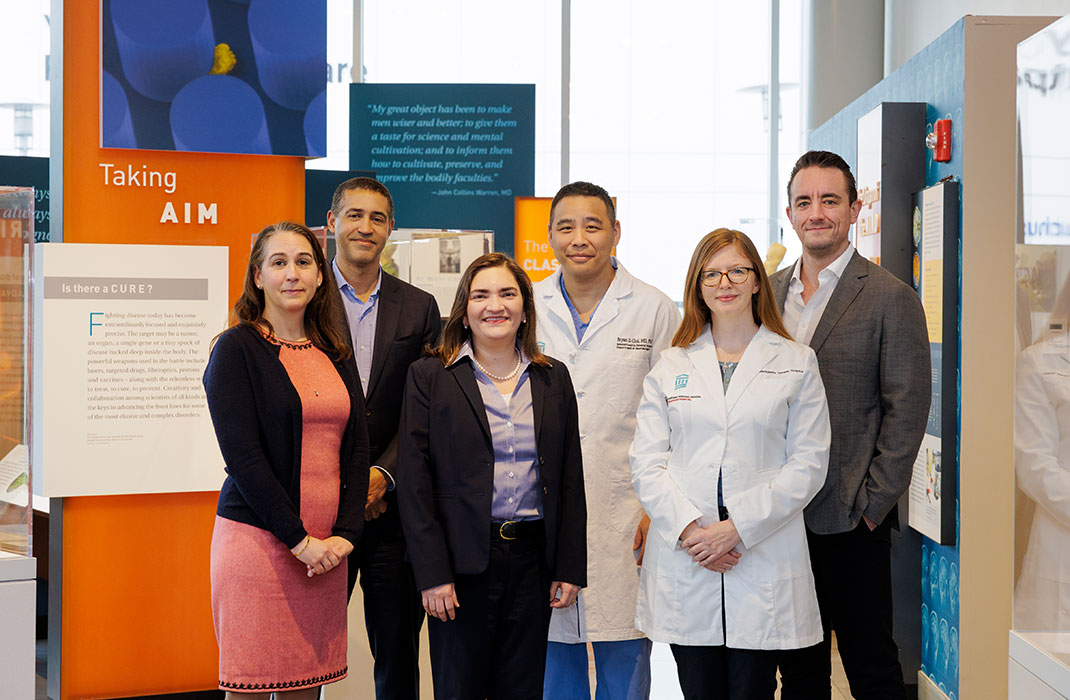-
- Find Care
-
- Visitor Information
- Find a Location
- Shuttles
- Visitor Policies
-
-
- Our Virtual Care Options
- 24/7 Virtual Care
- Virtual Visits for Primary & Specialty Care
- Online Second Opinions
- Participate in Research
-
- Contact us
-
- For Innovators
- Commercialization Guide for Innovators
-
-
- Research News
- Alzheimer's Disease
- Artificial Intelligence
-
- Overview
-
- Overview
- Getting Started
- New to Mass General Brigham
- International Patient Services
- What Is Patient Gateway?
- Planning Your Visit
- Find a Doctor (opens link in new tab)
- Appointments
- Patient Resources
- Health & Wellness
- Flu, COVID-19, & RSV
- Billing & Insurance
- Financial Assistance
- Medicare and MassHealth ACOs
- Participate in Research
- Educational Resources
- Visitor Information
- Find a Location
- Shuttles
- Visitor Policies
- Find Care
-
- Overview
- Our Virtual Care Options
- 24/7 Virtual Care
- Virtual Visits for Primary & Specialty Care
- Online Second Opinions
-
- Overview
- Participate in Research
-
- Overview
- About Innovation
- About
- Team
- News
- For Industry
- Venture Capital and Investments
- World Medical Innovation Forum (opens link in new tab)
- Featured Licensing Opportunities
- For Innovators
- Commercialization Guide for Innovators
- Contact us
-
- Overview
- Information for Researchers
- Compliance Office
- Research Cores
- Clinical Trials
- Advisory Services
- Featured Research
- Two Centuries of Breakthroughs
- Advances in Motion (opens link in new tab)
- Brigham on a Mission (opens link in new tab)
- Gene and Cell Therapy Institute
- Research News
- Alzheimer's Disease
- Artificial Intelligence
-
- Overview
-
- Overview
- Residency & fellowship programs
- Brigham and Women's Hospital
- Massachusetts General Hospital
- Mass Eye and Ear
- Newton-Wellesley Hospital
- Salem Hospital
- Integrated Mass General Brigham Programs
- Centers of Expertise
- Global & Community Health
- Health Policy & Management
- Healthcare Quality & Patient Safey
- Medical Education
- For trainees
- Prospective trainees
- Incoming trainees
- Current trainees
- Continuing Professional Development
- Research and Innovation
- Centers and Programs
- Gene and Cell Therapy Institute
At Mass General Brigham, we are at the forefront of gene and cell therapy, pushing the boundaries of technology and clinical applications, advancing medical technologies that are revolutionizing patient care.
About the Gene and Cell Therapy Institute
The Gene and Cell Therapy Institute (GCTI) at Mass General Brigham is committed to finding targeted and transformative treatments that have the potential to cure diseases or halt their progression. The GCTI is committed to finding targeted and transformative treatments that have the potential to cure diseases or halt their progression. Our multidisciplinary approach unites more than 500 researchers and clinicians dedicated to advancing gene and cell therapy. We leverage expertise from across the entire Mass General Brigham ecosystem of medical innovation and foster an environment of shared knowledge. Led by renowned cardiac gene therapy pioneer Roger Hajjar, MD, the GCTI accelerates groundbreaking research, conducts clinical trials, and facilitates the development of FDA-approved treatments.
The GCTI is committed to expediting the pace of discovery and development by bridging the gap between academic research and practiceindustry development. The close relationships between industry, physicians, researchers, and patients enables translation to clinical applications. The GCTI also offers expertise in manufacturing, regulatory, clinical trials, and core laboratory services.
The GCTI's annual research symposium is an exploration of the dynamic research landscape within the Mass General Brigham community, uniting trailblazers who are driving advancements in gene therapies, cell therapies, and gene editing techniques to combat human diseases.
Leaders in Gene and Cell Therapy Research
The Gene and Cell Therapy Institute's leadership actively fosters and establishes both internal and external connections to drive forward the advancement of gene and cell therapy treatments and groundbreaking discoveries.
News & highlights
Mass General Brigham teams are leading novel approaches in innovation and improved patient care.
-

June 17, 2025
-

June 2, 2025
-

May 12, 2025
-

Apr 18, 2025
-

Mar 20, 2025
-

Feb 24, 2025
-

Jan 17, 2025
-

Nov 25, 2024
-

Nov 13, 2024
-

Sept 3, 2024
-

May 7, 2024
-

March 13, 2024


